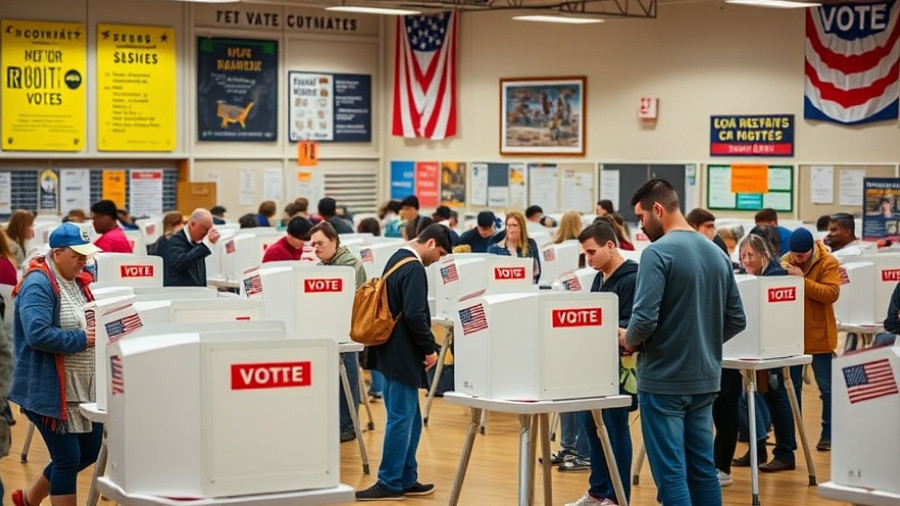
Election Day in Detroit: A Contest for the Heart of the City
Detroit has long been a city at the crossroads of opportunity and challenge, and on this election day, residents are faced with a pivotal decision: who will lead them over the next four years? With the race for Detroit mayor heating up between Barry Sheffield, the city council president, and Solomon Kinlock Jr., a pastor from Triumph Church, the stakes have rarely been higher. This election not only represents a moment of change but also embodies the collective psyche of the city's citizens, eager for progress and restoration.
In Detroit goes out and votes on who will lead the city for the next 4 years | LIVE, the discussion dives into the complexities of local governance and civic engagement, exploring key insights that sparked a deeper analysis from our end.
Voter Participation: The Driving Force Behind Change
Despite the excitement surrounding the mayoral race, it appears that voter turnout is lagging. Reports indicate that across several precincts, turnout is around 20%, consistent with previous mayoral elections. This raises questions about engagement and motivation among District residents. While the prospect of a new mayor should inspire civic participation, a combination of absentee voting and early voting has seemingly reduced the urgency for some voters to show up at the polls.
The Candidates: A Reflection of Detroit's Diverse Community
Both candidates bring unique perspectives and backgrounds that reflect Detroit's rich tapestry of culture and experience. Barry Sheffield, with his extensive experience as a city council member, emphasizes a vision rooted in pragmatic governance. In contrast, Solomon Kinlock Jr. appeals to the emotional and spiritual aspects of leadership, advocating for compassion and inclusivity. As they cast their votes today, both candidates are not merely participating in a civic duty; they are essentially shaping the narrative of Detroit's future.
What’s at Stake: More Than Just a Mayoral Race
This election transcends the positions of mayor and city council. It encompasses the city's broader trajectory related to public safety, economic revitalization, and community representation. Detroit is at a point where its citizens must collectively decide if they wish to enhance its reputation as a city of hope and reimagination or allow it to languish in past grievances. Voting, by every measure, is the essential first step.
Challenges to Turnout: Why Aren't More People Voting?
As reported, many voters are disinterested, citing factors such as a lack of compelling issues and convenience factors related to absentee and early voting. Additionally, the absence of urgent, galvanizing problems may prevent the public from seeing the significance of their participation. To truly revitalize voter engagement, candidates and civic leaders must work together to create an atmosphere where every vote feels consequential.
Looking Ahead: The Future of Detroit
The implications of today's election could reverberate throughout the city's future. As early results trickle in, they will not only highlight the preferred leadership style of its residents but also set the tone for future governance. Detroit citizens have an opportunity to reaffirm their commitment to democracy while selecting a path that reflects their aspirations for a vibrant and engaged community.
In Detroit goes out and votes on who will lead the city for the next 4 years | LIVE, the discussion dives into the complexities of local governance and civic engagement, exploring key insights that sparked a deeper analysis from our end. The community's response will be informative not only for this election cycle but will also inform future political dynamics within Michigan.
 Add Row
Add Row  Add
Add 



Write A Comment